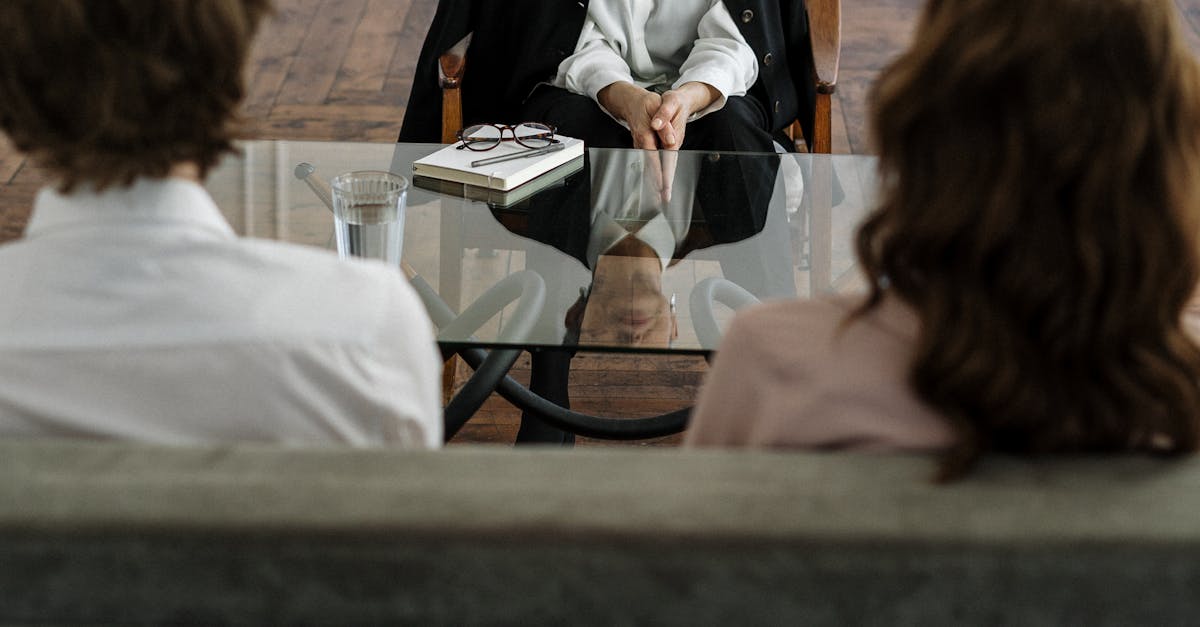
The Typical Structure of a Session
During a typical session of pre-marital counseling, couples can expect an environment that encourages open communication and self-reflection. A trained counselor will guide discussions on various topics, including communication styles, conflict resolution strategies, and financial management. These sessions often involve exercises designed to help each partner express their thoughts and feelings effectively. Topics may also delve into personal expectations, family dynamics, and individual beliefs, setting the groundwork for a strong marital foundation.
The structure usually includes a mix of discussions, worksheets, and practical exercises that promote teamwork and understanding. Couples may be asked to complete questionnaires before the session, which help the counselor tailor the discussions to their unique relationship dynamics. Interactive activities can also foster connection and insight, enabling couples to address potential areas of concern. Overall, pre-marital counseling sessions aim to equip partners with tools and strategies that can support a healthy, enduring marriage.
What to Expect
During pre-marital counseling, couples can expect a structured environment focused on open communication and mutual understanding. Sessions may include discussions about values, expectations, and conflict resolution strategies. Counselors often use various tools and assessments to help couples identify areas for growth and strengthen their relationship. Partners should approach these discussions with honesty and a willingness to share their thoughts and feelings.
The experience of pre-marital counseling aims to foster a deeper connection between partners. Each session typically encourages active participation from both individuals, promoting dialogue about important topics such as finances, family planning, and personal goals. Engaging with a counselor allows couples to gain insights that may not have been previously considered, enhancing their preparedness for marriage.
Timing for PreMarriage Counselling
Timing plays a crucial role in the success of Pre-Marital Counseling. Couples often benefit from starting this process several months before their wedding date. This allows adequate time to explore various topics, address potential concerns, and develop strategies for effective communication. By engaging in counseling early in the engagement period, partners can foster a deeper understanding of their relationship dynamics and build a stronger foundation for marriage.
Additionally, scheduling the sessions during times of reduced stress can enhance the effectiveness of Pre-Marital Counseling. Busy weeks may not provide the necessary space to fully engage in discussions. Couples should aim to prioritize these sessions alongside their wedding planning. By choosing a calm period, both partners can approach each session with openness and focus, maximizing the benefits of the counseling experience.
Ideal Stages for Engagement
Engagement is an important milestone in a couple’s journey, making it an ideal time to explore Pre-Marital Counseling. Couples often find themselves navigating new dynamics as they prepare for marriage. This stage is characterized by anticipation and excitement, accompanied by a need to deepen understanding of each other's values, expectations, and communication styles. Engaging in counseling during this phase allows couples to address potential challenges proactively, fostering a solid foundation for their future together.
The period shortly after the engagement can be particularly beneficial for Pre-Marital Counseling. Couples typically have a mix of planning and reflection during this time, making it an opportune moment for relationship assessment. Attending sessions early in the engagement allows partners to approach wedding planning with clarity and unity. By discussing critical topics such as finances, family dynamics, and conflict resolution, couples can emerge from counseling with enhanced tools and strategies for a successful marriage.
Engaging in the Process
Engaging in the process of Pre-Marital Counseling requires both partners to approach the sessions with openness and honesty. A willingness to discuss personal feelings, expectations, and potential challenges can lead to meaningful dialogue. This engagement allows couples to explore their values, beliefs, and any areas of conflict. Taking an active role in the conversations fosters a deeper understanding of each other and strengthens the foundation for a shared future.
Furthermore, it's essential to prioritize consistency in attending sessions. Regular attendance not only promotes continuous growth but also provides opportunities to delve into various topics important to the partnership. Couples who remain committed to the process often find it beneficial in navigating important discussions, ensuring that both partners feel heard and valued throughout the experience. This commitment ultimately contributes to a stronger relationship as the wedding day approaches.
Tips for Effective Participation
To make the most of your Pre-Marital Counseling sessions, active participation is key. Arrive prepared to discuss your thoughts, feelings, and concerns. This openness not only enriches the dialogue but also helps the counselor address specific issues pertinent to your relationship. Engaging with your partner during these discussions fosters better understanding and alignment on various topics, from finances to family dynamics.
Setting aside distractions can significantly enhance your experience. Consider putting away phones and other devices to focus entirely on the conversation. Being present allows for genuine interaction, enabling both partners to express themselves fully. Take notes during sessions if needed. This helps solidify insights gained through Pre-Marital Counseling and serves as a reference for future discussions as you continue to navigate your partnership.
FAQS
What is pre-marriage counseling?
Pre-marriage counseling is a process where couples prepare for their future marriage by discussing various topics such as communication, conflict resolution, and expectations. It aims to strengthen the relationship and address any potential issues before they arise.
How long does a pre-marriage counseling session typically last?
A typical pre-marriage counseling session usually lasts anywhere from one hour to two hours, depending on the specific needs of the couple and the structure of the program.
When should couples start pre-marriage counseling?
Couples should ideally start pre-marriage counseling during the engagement period, typically a few months before the wedding. This allows enough time to explore important topics and implement any necessary changes.
Is pre-marriage counseling only for couples with issues?
No, pre-marriage counseling is beneficial for all couples, regardless of whether they are experiencing issues. It serves as a proactive step to enhance communication and strengthen the relationship.
What topics are usually covered in pre-marriage counseling?
Common topics covered in pre-marriage counseling include communication styles, conflict resolution strategies, financial management, family planning, and personal values and goals.
